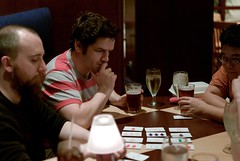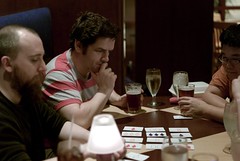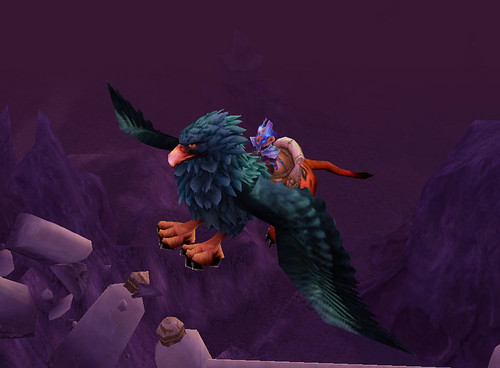I was invited to GDC Prime this year to talk about "More than MMOs: Let Them Build It. How user-created content has transformed online games into a new web platform."
What is GDC Prime? "GDC Prime is an executive-level conference that takes place during the week of GDC. This event includes tailored content as well as exclusive networking and VIP access to GDC. Space is limited and passes are available by invitation only."
The next obvious question is, what is GDC? "The Game Developers Conference (GDC) is the official trade event "by developers for developers" of computer, console, mobile, arcade, online games, and location based entertainment."
If you're in the game industry, you know about GDC. If you're like me and were never a game industry professional, odds are you didn't know about it... at least until now.
Anyway, having never attended this conference, I decided not to prepare my talk until I arrived and got a good look at my audience. It's actually a fascinating mashup of the old-school, hacker, anti-establishment gaming culture that I remember and a slick Hollywood-style "buzz" of a multi-billion dollar content industry.
I'm in the middle of reading Got Game: How the Gamer Generation Is Reshaping Business Forever by John C. Beck and Mitchell Wade. It's an HBS book from 2004 that argues that "they" (the baby boomer generation the authors represent) are misinterpreting and underestimating the size and impact of the gaming culture. They describe gamers as a newer and bigger generation than the baby boomers and assert that the thing that ties them together is gaming. They explain that gaming is bigger than the commercial Internet and only slightly smaller than TV in its cultural impact.
I had a slightly awkward feeling reading this book and talking to some of the game industry execs, I think I've started to understand. My first experience with computers was writing software in a research lab during the day and writing my own games on the lab computers at night. All of my teenage coding experience revolved around writing games or hacking game code. Later, I played MUDs and one of the main points of trying to become a max-level Wizard on a MUD was to be allowed to create your own worlds and monsters. Although I had interacted with parts of the gaming industry, for some reason, I still had the image of the gaming industry as a bunch of hackers who understand hacking... or at least the importance of "user-generated content."
The sense that I got yesterday was that the gaming industry was basically the same mass production and mass distribution content industry machine that Hollywood movies and television are. And... while there are certain companies and individuals who are bridging the gap between the gaming industry and the Internet, the gaming industry is making the same mistakes that the content guys have been making since the beginning of networked computers. They ALWAYS over-estimate the importance of the content and vastly underestimate the desire of users/people to communicate with each other and share.
History is riddled with examples like Minitel, the French videotex service that survived through personal communication despite the designers almost forgetting to put that feature in. There was Delphi whose architecture blew up because it was designed to deliver pages of information to users, not information between users. More recently there are the commercial video streaming companies continuing to struggle as user generated video sites like YouTube boom.
One way to think about this evolution is that as we empower the user through better computers and better networks, we are going from content to context. We used to listen to records and later CD's to wallow in our loneliness with self-pity laced teenage tunes. Later karaoke and video games came out which allowed us to interact with the content and feel a bit more involved and less lonely. Now we have MySpace, texting, blogging, Wikipedia and an explosion of online community generating content models. It is becoming less and less about content and more and more about context - less about professional content and more and more about us. The professional content is important and will never go away, but it is becoming more of a platform or substrate on which the users build their own communities, interaction and play.
My fear is that many game industry executives are losing touch with the new gamers that are emerging as our devices get networked. "Got Game" clumps MMORPGs together with other games as sufficiently similar to each other. I believe that for the purposes of trying to contrast the gamers from the baby boomers, this may be true, but I think that imagining that you can make games like you've always made them in the Internet era is a big mistake. The problem is that the gaming industry is so huge and profitable... and arrogant... that the lessons that we may be learning on the Internet are having a hard time penetrating the board rooms and design meetings of big gaming companies.
On the other hand, a lot of the usual suspects who "get it" are here and appear to be thoroughly networked. I'm hoping that these catalyst/bridge types will connect these two disconnected worlds and help the gaming industry from making the same mistake that the music industry made - getting disconnected from the needs of their users and waging a "war on piracy" against them.
![Joi Ito [logo]](/_site/img/joi-ito-logo-300.png)
















